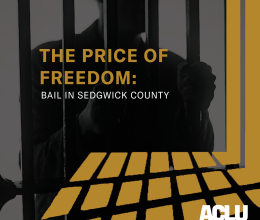
The Price of Freedom: Bail in Sedgwick County
In Sedgwick County, Kansas, your freedom before trial often depends on your bank account—instead of whether you pose a risk to the community or whether you’re likely to show up for court. Our latest report examines the county’s use of cash bail, and the findings are both troubling and urgent.
Over a one-year period, more than 10,000 people were booked into the Sedgwick County Jail. The majority weren’t accused of violent crimes—in fact, 84% of all charges were non-violent. Most people were being held not because they posed a public safety risk, but simply because they couldn’t afford to pay for their release.
The average total bond amount in Sedgwick County during this time was over $104,000—an astronomical figure compared to the average income in the area. For non-violent offenses, the median bond was $1,500. That might not sound like much to some, but for many Sedgwick County residents, it’s more than half their monthly income. Thanks to a 2024 law, bonding companies now charge a mandatory 10% fee—whereas previously, some charged lower percentages. This means that even a $2,500 bond means paying at least $250 up front—money that is never returned, even if all court requirements are met. For people already living paycheck to paycheck, this often means staying in jail for days, weeks, or even months just because they can’t pay.
Our report also lays bare the racial and gender disparities baked into the system. Black residents make up only 9% of Sedgwick County’s population but account for 32% of jail bookings. Black men, in particular, are severely overrepresented, making up just 4% of the county population but 25% of those incarcerated. Our report found that more than half of the people who remained in jail 30 days after their bail was set were people of color—despite white individuals making up over half of the jail’s population. In other words, people of color are more likely to be held longer simply because they can’t afford to pay.
Additionally, women comprise 25% of those in jail in Sedgwick County, slightly higher than the national average, and they often bear unique burdens while incarcerated. Many are mothers, and their detention disrupts families, increases stress on children, and amplifies mental health struggles.
To illustrate how this plays out in real life, we present the story of “Karen,” a fictional but realistic composite character. Karen earns about $3,000 a month and lives with her husband and daughter. When her husband is arrested and given a $2,500 bond for a marijuana possession charge, she can’t come up with the money to get him out without sacrificing rent, groceries, or childcare. It’s a choice no one should have to make- food for your family- but for many families in Sedgwick County, it’s a daily reality.
The longer people sit in jail because they can’t afford bail, the more harm they endure. People lose jobs. They risk housing instability. Children may end up in foster care. Some individuals plead guilty just to get out of jail, even if they’re innocent. Even though judges are supposed to set bail based on factors like income, flight risk, and community safety, Sedgwick County often relies on a pre-set bond schedule. In fact, 85% of people charged with felony drug possession received the exact scheduled bond amount of $2,500—regardless of their ability to pay or the specifics of their case. Only 4% received a lower amount, suggesting that judges are rubber-stamping bond schedules without much individual assessment.
But this system isn’t set in stone—and the public wants change. A recent poll found that nearly 70% of Kansas voters support bail reform that would allow most people to go home the same day they’re arrested, as long as they’re not a danger or flight risk. The ACLU of Kansas is urging the Sedgwick County District Attorney to take immediate action by issuing an internal policy: recommend non-monetary “Own Recognizance” (OR) bonds for nonviolent offenses, and only request cash bail when truly necessary—and even then, only in amounts tailored to someone’s ability to pay.
In the end, our report shows what many people in Sedgwick County already know: the cash bail system makes us less safe--—and makes it harder for poor and working-class people to live with dignity. Freedom shouldn't be something you can buy. It's time to stop treating poverty like a crime and create a pretrial system that meets the needs of our communities.
Related content


ACLU calls on Lenexa police to release footage in fatal shooting of...
July 9, 2025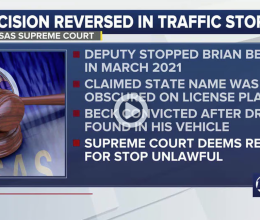
Kansas Supreme Court rules unlawful stop nullifies drug conviction
July 9, 2025
Kansas county’s money bail system leaves people sitting in jail,...
July 2, 2025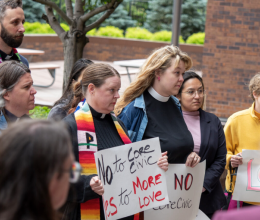
ICE rushed no-bid contract to pay CoreCivic $4.2M per month to hold...
July 1, 2025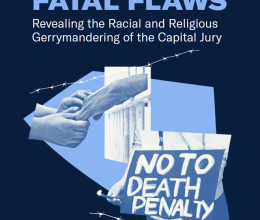
Fatal Flaws: Revealing the Racial and Religious Gerrymandering of...
June 30, 2025New ACLU of Kansas report finds the “Price of Freedom” in Sedgwick...
June 25, 2025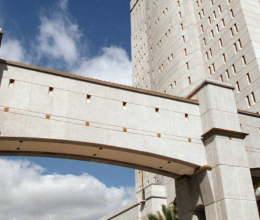
‘Some cry all day.’ ICE detainees face harsh conditions in Miami...
June 7, 2025